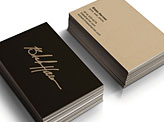With so many web design agencies, design boutiques and independent contractors, sometimes it’s easy to overlook the importance of matching a designers style, technique and overall portfolio with your actual product and brand.
A well-executed website design can do wonders for your company and help build brand awareness and credibility to your product and company. So how do you choose the right web designer? There are many thing to look for and compare when shopping for your web design company. First off, it’s important to understand exactly what type of designer you are hiring.
What is a web designer?
A good web designer or design company takes on many roles. The designer should be an artist, a coder, a project manager, a copywriter and overall must have a good sense of your business and understand your goals. An all-in-one “full-stac” web designer will engage and educate themselves about your product or service and build you a not only a beautiful design, but an intuitive, well-organized fine-tuned marketing mechanism to engage and attract users on all devices and platforms. Of course, don’t forget that web development also has a big role when it comes to your website’s performance. Some of the best New York web development companies have been using strategies to improve the performance of their client’s website and make it stands out in front of others.
A web designer is not only just responsible for creating, designing, and maintaining web pages. A designer must understand who you target audience is, what they are searching for and how they will interact with your pages. A smooth and intuitive design allows you to create brand awareness and successfully fine-tune the marketing message you want to convey to your target customers.
How to choose the right web designer for your company
It’s important to find a designer that makes sense for your project when searching for the right web designer for your company and industry.
For example, are you selling a product locally or nationally? Do you want someone local that is familiar with your city. If your target audience is in Chicago, and you sold merchandise specific to Chicagoans, it could be beneficial to find a local designer that understands your niche.
Let’s say you sold Chicago sports apparel. A local Chicago designer would understand the appeal to your specific local audience and therefore can give insight into marketing and imagery that attracts local Chicagoans. You wouldn’t want to hire a California company to design your Chicago sports apparel website. So when searching for a Chicago web design company and comparing local designers, you’ll want to make sure your designer is familiar with your industry, passionate and has a strong portfolio that emphasizes the quality of their work—as well as other local Chicago clients that have left good reviews.
Choose an experienced designer
The web designer is the one who will most likely be in charge of carrying out all creative/artistic aspects of the project and executing them into visual representations of your message. If a designer does not have the proper experience, knowledge and skills required to build a modern, great looking website, most likely your project is not going to be a great investment.
If you want your website to be both functional and attractive, the best thing to do is invest the necessary budget to find an experienced designer that has a strong portfolio of work similar to your company’s website needs.
Make sure your goals are clear
It is important to be clear: What do you want your website to actually do? What are your marketing goals? Are you planning on a mobile app in the future? Will your website be used mostly on desktop computers, tablets or mobile smart devices?
If you are not clear on exactly what you need for your company website, tell your prospective designer about your marketing and design ideas and they should help you build a strategy that makes sense or refer you to a web design company that is best-suited for your project.
Define your branding guidelines
Brand guidelines are made up of a company’s choice of typography, color scheme, and design decisions. A clear brand strategy and guidelines document can help your web designer stay consistent across all creative projects and ensure that your brand is properly represented online.
A consistent brand paired with a clear marketing message can connect you with your target audience as well as build brand awareness and confidence to your users.
Once you have defined your branding strategy you are ready to start building your new website.
WordPress as a Content Management System
The Official WordPress company page indicates that over 30% of the websites that make up the digital world are created using WordPress CMS.
A WordPress-based design allows you the flexibility to:
1) Create a personal website for you or your business.
2) Maintain content in a user-friendly, intuitive interface.
3) Write, edit and publish content in a blog or news feed.
4) Implement 3rd party software such as an e-commerce shopping cart.
Speed
In contrast to a static website, WordPress sites are not known for their speed (since the data is being pulled dynamically for a database). That said, it’s important to choose a web designer that can optimize WordPress to load as fast as possible for the user. If your website loads too slow, you could lose potential traffic.
Flexibility
When creating a website, it is important that the CMS allows for a non-technical user/client to easily upload photos, videos; or share additional content among other team members. WordPress is built to allow a team of users to work simultaneously on the same site with little or no coding experience necessary.
A few key design and content elements that users look for which can increase sales and acquisitions:
Calls for action
Buttons, links and marketing copy that are distributed throughout your web page in order to engage with the user. A call-to-action lets the user know how to contact you, inquire about your product or service, fill out a form, or complete some action that is important to your marketing goal. (eg ‘click here to learn more!)
Customer Testimonials
Testimonials and reviews from other customers are a great way to build confidence in your potential buyer. Users enjoy reading how customers have experienced your project and/or service and a website with solid, credible reviews is more likely to persuade a customer who is shopping around for your product/service.
SEO
SEO is short for Search Engine Optimization. What do you mean by that? It is the process of building your new website with the goal of ranking well in Google’s organic listings (SERPs). A website that is optimized for certain keywords should have more visibility and traffic from Google when users search for a specific keyword or keyword phrase. It’s important to discuss your SEO goals with your web design company, and make sure they offer SEO services or can consult on your search engine marketing needs.
Responsive Design
A modern website design must be accessible from several devices such as mobile smart phones, tablets and desktop computers. Monitor sizes and shapes vary these days so a website design must “responsively” adapt to the user’s device and screen resolution. A well-designed website uses responsive design techniques which dynamically change your website’s layout and design elements to adequately display on the user’s device.
Maintenance and update
Although your website must have flexibility when modifying, indexing, or deleting content, it is also important that your web design company can offer maintenance and support.
Why is this beneficial? Because just as with your smartphone, WordPress and modern CMS systems rely on 3rd party plugins and core software which is constantly being improved, fixed and updated for security flaws. Make sure your web design company gives you a solution for WordPress maintenance and updating your site or ignoring your software updates could prove to be a costly mistake.
Advantages of a top-quality, modern website design
Choosing a web designer for your new website can be difficult without the shopping around and comparing agencies, freelancers and boutique design companies. Once you have nailed down a hard list of potential designers, make sure you grade them based on their experience and insight to some of these important features/aspects to building a new website design:
1. Competitiveness
What will their company do for your new website that puts them above their competitors? What is their competitive advantage?
2. Conversions and Acquisitions
A professionally built website needs to attract more customers to your product or service. Ask your designers about lead-generation, conversions, enticing marketing copy and their experience in generating sales leads.
3. The “Wow” factor
You want your new website to “wow” your users. Whether implementing video and animation or interactive components, make sure your designer is offering techniques that stand above the average website. Will your new website make your target audience say “wow!”? If not, you could be paying for average work.
4. The future is here
Web design is no longer the “future of entrepreneurs”, it is the here and now and most companies cannot compete or survive without online presence. It is the digital connection channel to your future clients. Make sure it’s not good, but great.












